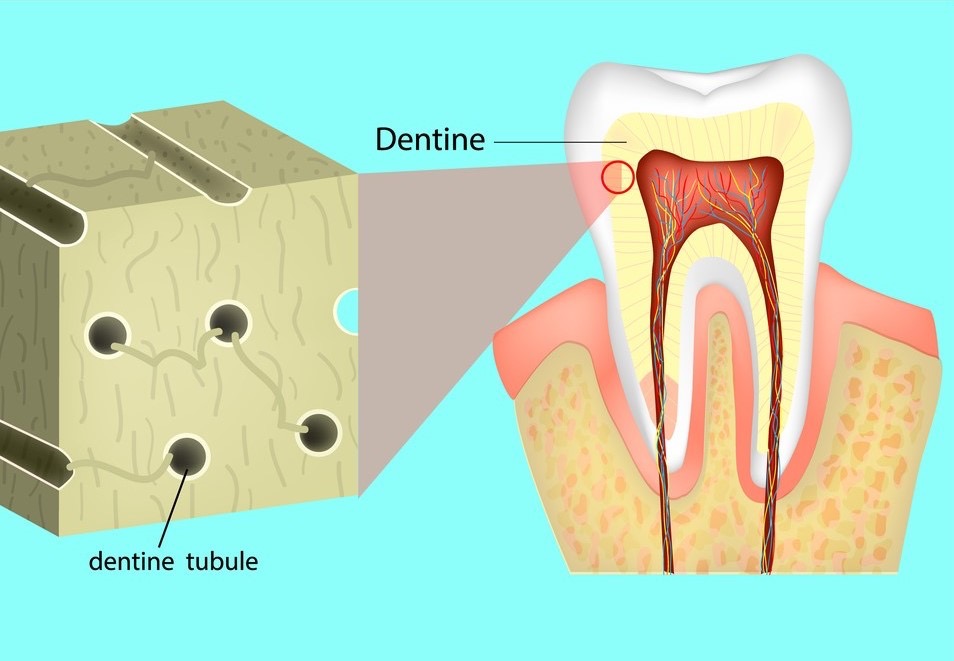Are you tired of wincing in pain every time you take a sip of hot coffee or indulge in your favorite icy treat? Tooth sensitivity can put a damper on your enjoyment of everyday pleasures. Understanding the causes, symptoms, and treatment options of tooth sensitivity is crucial for finding relief and getting back to a pain-free life.
What is Tooth Sensitivity?
Tooth sensitivity, also known as dentin hypersensitivity, is a common dental condition characterized by a sharp pain or discomfort in the teeth when exposed to certain stimuli, such as hot or cold temperatures, sweet or acidic foods, and even brushing or flossing.
The dentin contains tiny tubules (microscopic hollow channels) that lead directly to the nerve endings. When the dentin is exposed, external factors, such as heat and cold, can reach the nerves inside the tooth, causing pain or discomfort.
Common Causes of Tooth Sensitivity
Several factors can contribute to tooth sensitivity.
Worn Tooth Enamel
Worn tooth enamel is one of the most common causes of tooth sensitivity. Enamel is the hard outer covering that protects the sensitive inner layers of the tooth. When the enamel wears down due to aggressive brushing, acidic foods, acidic drinks, or teeth grinding, the dentin underneath becomes exposed.
Worn or Damaged Fillings
When fillings become worn or damaged, they may no longer effectively seal the tooth from external stimuli like hot, cold, sweet, or acidic foods and beverages. As a result, the dentin underneath the filling becomes vulnerable to these stimuli, leading to discomfort or pain. Additionally, worn fillings can allow bacteria to infiltrate the tooth, potentially causing decay and worsening sensitivity.
Gum Recession
Gum recession or gum disease can intensify tooth sensitivity by exposing the teeth’ softer, more porous root surfaces. When gums recede, they expose the sensitive nerves within the tooth, making them more susceptible to temperature changes. Additionally, the roots become more easily irritated during brushing, flossing, and chewing, worsening sensitivity and discomfort. Furthermore, the increased risk of tooth decay associated with gum recession can compromise the overall integrity of the teeth, contributing to heightened sensitivity.
Tooth decay
As a tooth decays, it eats away at the enamel, the outer layer of the tooth, exposing the sensitive dentin underneath. As explained above, this dentin contains microscopic tubules that lead to the tooth’s nerve center. When exposed to hot, cold, sweet, or acidic substances, these tubules transmit sensations of discomfort or pain to the nerves, resulting in tooth sensitivity. Addressing tooth decay early through proper dental care and regular check-ups is crucial to prevent further damage and alleviate sensitivity.
Cracked or Chipped Teeth
Cracks or chips in teeth disrupt the tooth’s structure, weakening its ability to withstand hot, cold, and pressure.
Understanding the Symptoms of Tooth Sensitivity
Recognizing the symptoms of tooth sensitivity is crucial for early detection and prompt treatment.
The most common symptom of tooth sensitivity is a sharp pain or aching sensation when you expose your teeth to hot or cold temperatures, such as when consuming hot or cold foods and beverages or even when breathing in cold air.
Tooth sensitivity can also cause discomfort when consuming sweet or acidic foods and drinks. Exposure to these substances can trigger pain or sensitivity in the teeth.
Even routine oral care activities like brushing or flossing can become painful if you have tooth sensitivity. The pressure from the brush or floss can cause sensitivity and discomfort.
It is essential not to ignore these symptoms, as they can indicate underlying dental issues. Seeking professional dental care can help diagnose the cause of the sensitivity and provide appropriate treatment options.
Diagnosing Tooth Sensitivity
If you are experiencing tooth sensitivity, we recommend you schedule an appointment with Embrace Family Smiles for a proper diagnosis from one of our doctors. During the examination, your dentist will evaluate your dental health and assess the extent of your tooth sensitivity.
Your dentist may ask questions about your symptoms and any triggers you have noticed. They may also perform tests, such as applying cold air or fluids to your teeth to determine the level of sensitivity.
In some cases, your dentist may take dental X-rays to check for any underlying issues, such as tooth decay or gum disease, which could be causing the sensitivity.
Based on the diagnosis, your dentist will recommend appropriate treatment options to alleviate your tooth sensitivity and address any underlying dental problems.
Treatment Options for Tooth Sensitivity
Fortunately, there are various treatment options available to help alleviate tooth sensitivity. The treatment choice depends on the sensitivity’s underlying cause and the symptoms’ severity. Here are some common treatment options at Embrace Family Dental:
- Fluoride treatments: Your dentist may recommend fluoride treatments to strengthen the enamel and reduce sensitivity. Fluoride helps to remineralize the tooth surface, making it less susceptible to sensitivity.
- Dental sealants: Dental sealants are thin plastic coatings applied to the chewing surfaces of teeth to protect them from decay and sensitivity.
- Dental fillings: If tooth decay is causing your sensitivity, your dentist may recommend dental fillings to remove the decayed portion of the tooth and restore its structure.
- Dental crowns: Your dentist may recommend a dental crown in cases where a tooth is severely damaged or weakened. Crowns cover the entire tooth, providing protection and reducing sensitivity.
- Inlays and onlays: Inlays and onlays are dental restorations dentists use to repair teeth with moderate decay or damage. They are custom-made to fit your tooth and can help reduce sensitivity.
It is essential to consult with your dentist to determine the most appropriate treatment option for your specific needs.
Conclusion: Taking Care of Your Oral Health to Prevent Tooth Sensitivity
Tooth sensitivity can be a frustrating and painful condition. Still, by understanding tooth sensitivity causes and recognizing the symptoms, and exploring the available treatment options, you can find relief and improve your dental health.
Proper oral hygiene practices can help prevent tooth sensitivity. Regular dental check-ups are essential for early detection and treatment of dental issues.
Remember, your dental health is in your hands. Taking care of your oral health can prevent tooth sensitivity and allow you to enjoy a pain-free life filled with your favorite foods and drinks.
If you have tooth sensitivity or have any questions about your oral health, contact us now. We have three locations to service you – Woodbridge, Dale City, and Burke.
Your Trusted Partners in Orthodontic and Dental Care,





